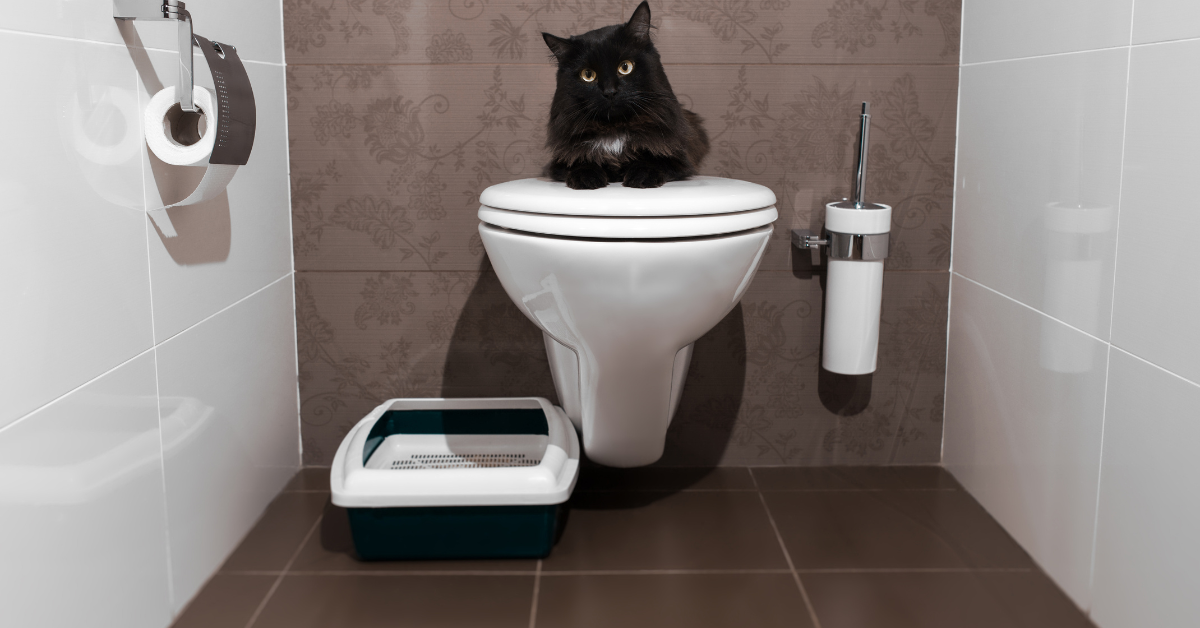Avoid Clogs and Damage: Don't Flush Cat Poop Down Your Toilet - Professional Insights
Avoid Clogs and Damage: Don't Flush Cat Poop Down Your Toilet - Professional Insights
Blog Article
How do you feel in regards to Can You Flush Cat Poo or Litter Down the Toilet??

Introduction
As pet cat proprietors, it's essential to bear in mind just how we get rid of our feline friends' waste. While it may appear practical to purge pet cat poop down the commode, this practice can have harmful repercussions for both the atmosphere and human wellness.
Alternatives to Flushing
The good news is, there are more secure and a lot more accountable methods to take care of pet cat poop. Think about the complying with options:
1. Scoop and Dispose in Trash
The most common method of getting rid of cat poop is to scoop it right into a naturally degradable bag and toss it in the trash. Make certain to use a committed litter inside story and dispose of the waste immediately.
2. Usage Biodegradable Litter
Choose eco-friendly pet cat litter made from materials such as corn or wheat. These trashes are eco-friendly and can be safely gotten rid of in the garbage.
3. Hide in the Yard
If you have a yard, think about burying pet cat waste in a marked area far from veggie yards and water resources. Make certain to dig deep adequate to stop contamination of groundwater.
4. Mount a Pet Waste Disposal System
Buy a pet dog garbage disposal system especially created for feline waste. These systems make use of enzymes to break down the waste, minimizing odor and environmental influence.
Health and wellness Risks
In addition to ecological problems, flushing cat waste can also present health risks to human beings. Feline feces may contain Toxoplasma gondii, a bloodsucker that can cause toxoplasmosis-- a possibly severe health problem, particularly for pregnant ladies and people with weakened immune systems.
Ecological Impact
Flushing feline poop introduces unsafe virus and parasites right into the water system, presenting a considerable risk to marine environments. These contaminants can adversely influence marine life and concession water high quality.
Conclusion
Accountable pet dog ownership extends beyond giving food and shelter-- it likewise involves appropriate waste management. By refraining from flushing feline poop down the commode and selecting alternate disposal approaches, we can reduce our ecological impact and secure human health.
Why You Should Never Flush Cat Poop Down the Toilet
A rose by any other name might smell as sweet, but not all poop is created equal. Toilets, and our sewage systems, are designed for human excrement, not animal waste. It might seem like it couldn’t hurt to toss cat feces into the loo, but it’s not a good idea to flush cat poop in the toilet.
First and foremost, assuming your cat uses a litter box, any waste is going to have litter on it. And even the smallest amount of litter can wreak havoc on plumbing.
Over time, small amounts build up, filling up your septic system. Most litter sold today is clumping; it is made from a type of clay that hardens when it gets wet. Ever tried to scrape old clumps from the bottom of a litter box? You know just how cement-hard it can get!
Now imagine just a small clump of that stuck in your pipes. A simple de-clogger like Drano isn’t going to cut it. And that means it’s going to cost you big time to fix it.
Parasitic Contamination
Believe it or not, your healthy kitty may be harboring a nasty parasite. Only cats excrete Toxoplasma in their feces. Yet it rarely causes serious health issues in the cats that are infected. Most people will be fine too if infected. Only pregnant women and people with compromised immune systems are at risk. (If you’ve ever heard how women who are expecting are excused from litter cleaning duty, Toxoplasma is why.)
But other animals may have a problem if infected with the parasite. And human water treatment systems aren’t designed to handle it. As a result, the systems don’t remove the parasite before discharging wastewater into local waterways. Fish, shellfish, and other marine life — otters in particular — are susceptible to toxoplasma. If exposed, most will end up with brain damage and many will die.
Depending on the species of fish, they may end up on someone’s fish hook and, ultimately on someone’s dinner plate. If that someone has a chronic illness, they’re at risk.
Skip the Toilet Training
We know there are folks out there who like to toilet train their cats. And we give them props, it takes a lot of work. But thanks to the toxoplasma, it’s not a good idea.

I was brought to that editorial on How to Dispose of Cat Poop and Litter Without Plastic Bags through a good friend on another web address. Sharing is nice. Helping others is fun. Thank you so much for your time invested reading it.
Click Here Report this page